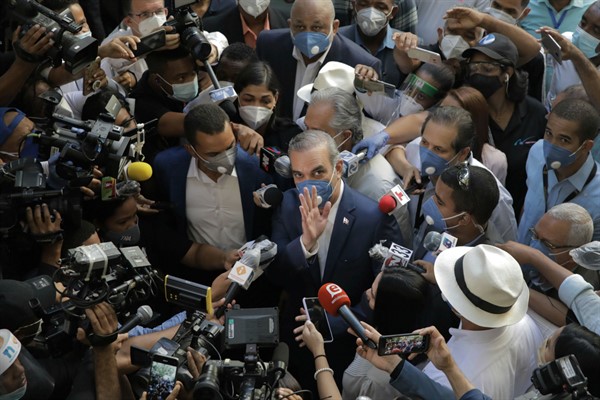In a general election earlier this month, voters in the Dominican Republic dealt a stinging defeat to the ruling Dominican Liberation Party, or PLD, which has dominated politics in the country since 2004. Luis Abinader, an economist and businessman who has never held political office, was elected president, and his Modern Revolutionary Party, or PRM, emerged as the largest party in Congress.
The vote was initially scheduled to be held in May, but was postponed due to the coronavirus pandemic, which has taken a devastating toll on the Dominican Republic. The country has reported over 57,000 cases of COVID-19, including 1,000 deaths, more than any other country in the Caribbean.
In an email interview with WPR, Leiv Marsteintredet, a political scientist and expert on Latin America at the University of Bergen in Norway, analyzes the results of the election and the challenges facing the incoming Abinader administration.

